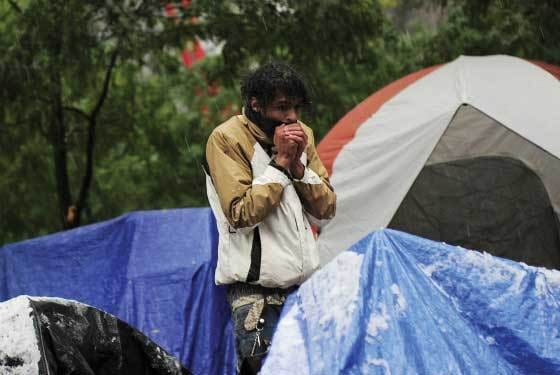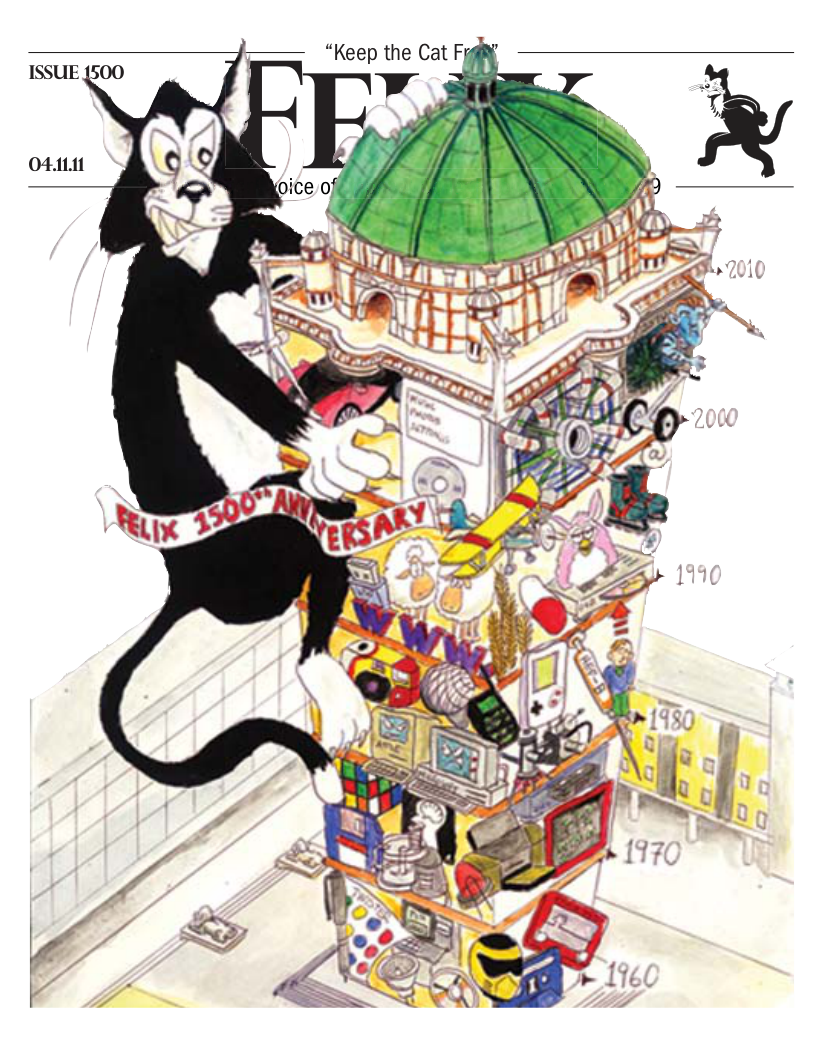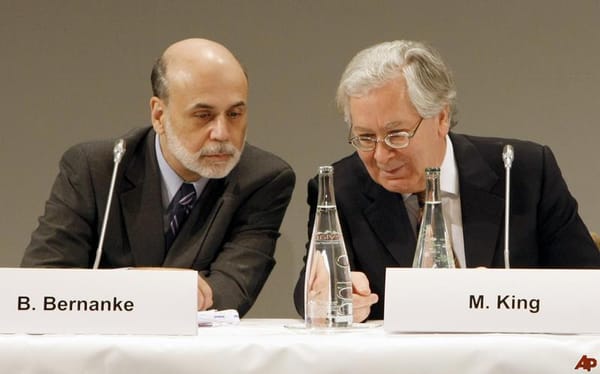You there, make way for liberty!
“Quand je sens que ma foi dans les forces suprêmes faiblit, je pense toujours au miracle de l’anti-freeze” – by Ninochka Vodanoj

DISCLAIMER: These opinions are ficticious and form part of a celebration of Felix's 1500th issue. Any resemblance to real opinions, living or dead, is purely coincidental.
This weekend Manhattan saw the earliest snowfall since the American Civil War. It fell on the Jack-o’-lanterns left outside for Halloween, over the tents in Zuccotti Park, and, too, on the falling faces of the Occupy Wall Street protestors. But the snow in New York, and falling temperatures elsewhere, are not the only threats the movement faces.
Footage taken with thermal imaging cameras of the camp outside St. Paul’s has shown a number of unoccupied tents, and there are stories, not least from the protesters themselves, of abandonment. Robin Smith, a one-time Conservative counsillor, now part-time Occupier, explained to the Mail “There are lots of middle-class people turning up and helping but they have to go back home ... they’ve got jobs and a family to keep. I go home every two or three nights to get cleaned up and then return to my tent.” Over the pond Chris Goldsten, Occipier of Wall St., told Time Magazine how bad weather sends him back to his New Jersey home at nights. “I occupied a puddle,” he said.
While protestors have refuted claims that only one in 10 tents are in use, calling on reports from external experts that question the accuracy of the technology, such stories, regardless of their accuracy, only enhance the widespread perception of a lack of seriousness among Occupiers.
Behind closed doors bankers dismiss the protesters. “It’s not a middle-class uprising,” the NYTimes quotes one banker, “It’s fringe groups. It’s people who have the time to do this”. It is the nature of popular movements to begin at the fringes before taking hold of popular support, but even vocal supporters of past social movements are on the fence with this one. In an interview with The Republican’s Kevin O’Hare, Joan Baez, folk singer and participant in the civil and human rights movements, as well as the anti-Vietnam war protests, states “I’ll be convinced when it develops a real direction ... So far it’s hard to tell”.
As Occupy stretches on the increasing disinterest of the media in its coverage has led the sector towards criticism of the movement. Unable to report progress against a litany of such abstract demands as “Not to be shoehorned into a convinient narrative by defining ourselves” and “[To gain] a cultural foothold and evolve into something much bigger”, they disparage the Occupy movement’s lack of definition, inquiring as to the seeming lack of direction or agenda, and questioning the future of the 99 per cent if they refuse to define themselves more traditionally. Similarly to Baez, they call for a figurehead and for concrete demands.
Such sentiments are echoed in Wall St. and the City where this lack of direction is understood as representative of an ill-informed community. “Financial services are one of the last things we do in this country and [we] do it well. Let’s embrace it,” says one Wall St. money-manager to the NYTimes. This money-man complains too of a lack of comprehension among congress. Of Senator Charles E. Schumer he states, “They need to understand who their constituency is,” referring to the power of funding in influencing political campaigns.
Though these protests are directed at bankers, they represent a wider discontent and a growing distrust in politicians and the economy. The links between money and policy, as Schumer was reminded, may be one of the reasons the Occupiers are unwilling to push paper through the houses of parliament and congress. Whether or not this movement can survice without following a more classical, more well-defined path remains to be seen. First, it will have to survive the cold. Seizing the bout of bad weather as an opportunity to prove his dedication to the cause, Eric, an unemployed carpenter, offers a hand: “I’ve been going around tents today trying to weatherise them,” he says, abstractly.









